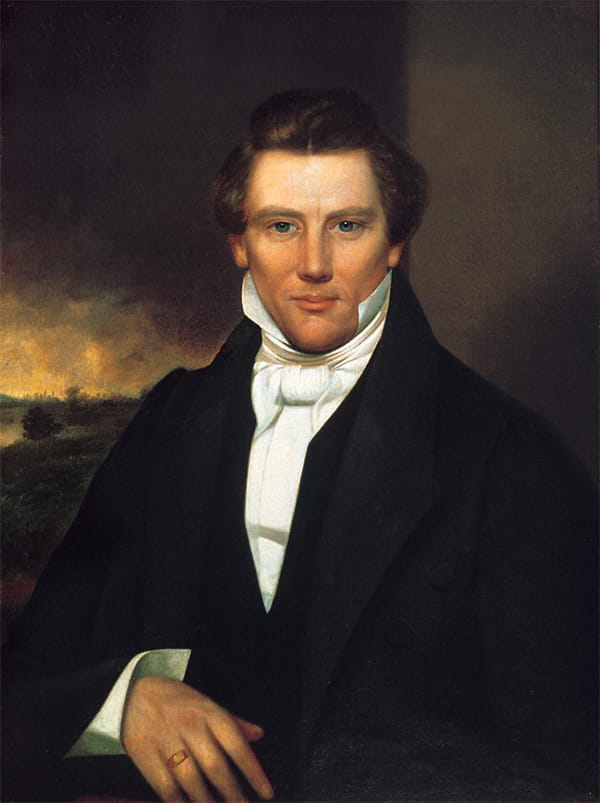In the concluding speech of the two-day conference, President of the Church of Jesus Christ of Latter-day Saints Gordon B. Hinckley spoke Sunday in strong, confident tones of his own beliefs.
"Like the polar star in the heavens, regardless of what the future holds, there stands the Redeemer of the world, the Son of God, certain and sure as the anchor of our immortal lives," he said.
Hinckley acknowledged that there is substance in the claims of critics who say that Mormons do not believe in the "traditional Christ of Christianity." Several Protestant denominations, including the Presbyterian Church (USA) and the United Methodists, have determined that Mormon beliefs fall outside those of historic Christianity and thus require Mormons joining their churches to be baptized. But Hinckley was unabashed in favoring his faith's understanding of Jesus and his mission.
"Our faith, our knowledge is not based on ancient traditions, the creeds which came of a finite understanding and out of the almost infinite discussions of men trying to arrive at a definition of the risen Christ," Hinckley said, alluding to the councils of the early Christian church that produced the Nicene Creed used as a profession of faith by most of mainstream Christianity.
LDS beliefs about the nature of divinity come from "the witness of a prophet in this dispensation who saw before him the Great God of the universe and his beloved Son, the resurrected Jesus Christ," Hinckley said.
Mormons believe that church founder Joseph Smith had a vision of God and Christ in a grove of trees near his home in 1820.
"It was a vision of the Almighty and of the Redeemer of the world, glorious beyond our understanding, but certain and unequivocating in the knowledge which it brought," he said.
"Marvelous are the fruits of faith. It is the power that builds and sustains this church. It is the path we walk as [the Lord's] disciples," Hinckley said. "Faith is the very fiber that gives strength to this work. Wherever this church is established across the broad world, it is evident. It is not limited to one country or one nation or one language or one people."
Other speakers on Sunday talked about prayer, envy and spiritual journeys. Apostle Robert D. Hales, who oversaw the church's efforts during the 2002 Winter Olympics, commented on the use of light during the Games, including the flame, the "child of light" figure in the Opening and Closing ceremonies and the theme "Light the Fire Within."
"But what moved us most was not the competition or the spectacle," Hales said. "It was the deeper truth these things symbolized -- the source of the light within each of us."
Elder M. Russell Ballard of the Quorum of the Twelve Apostles recited the well-known prayer of St. Francis of Assisi as an illustration of how God's peace can transform people.
"Once we have tasted the sweet fruit of God's peace, we are naturally inclined to share it with others," he said. "Francis of Assisi was known as a 'lover of all creation' who lived most of his life ministering to the poor and needy around him, including the animals. The peace he found in his service energized him and made him yearn to embrace others within it."
Ballard, the church's representative on the Alliance for Unity - - a coalition of community leaders working toward bridge-building - - encouraged members to spread peace liberally with friends, families and communities.
"While those around us may not choose to taste the sweetness and peace of the fullness of the restored gospel for themselves, surely they will be blessed by seeing it in our lives and feeling the peace of the gospel in our presence. The message of peace will grow and expand through our example," he said.
In his sermon on prayer, James E. Faust, Hinckley's counselor in the governing First Presidency and among his closest friends, became so emotional he could hardly finish his sentence.
"I sincerely hope that as we say our daily prayers we remember to ask the Lord's blessings to continue to abide with our beloved leader, President Gordon B. Hinckley," Faust said. "No one fully knows, not even his counselors, how heavy his burdens are and how great his responsibility is."
Tribune reporter Hilary Groutage Smith contributed to this report.

